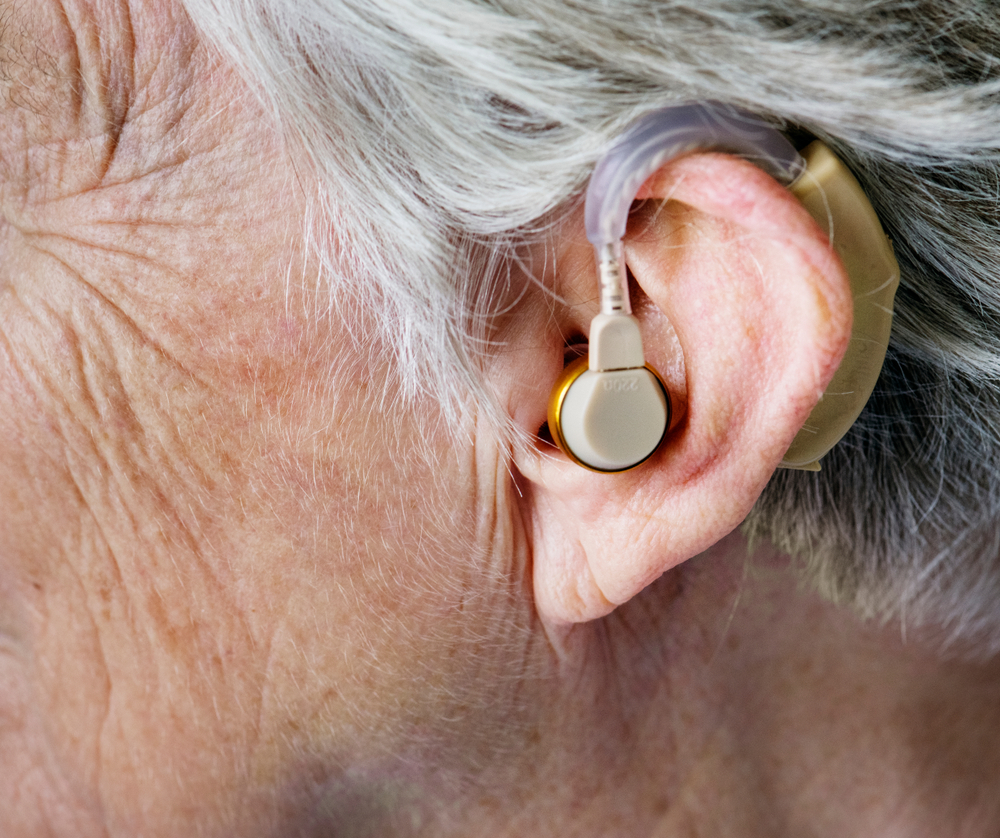Age-related hearing loss, also called presbycusis, is a common problem affecting many older people. It can affect many parts of daily life, including how they talk to each other. As seniors’ hearing gets worse, they need to be able to communicate clearly to stay socially active and connected to their loved ones and the world around them. This blog is meant to give people with age-related hearing loss and those who interact with them helpful information and tips.
If you or a loved one are dealing with age-related hearing loss, the first thing to do is contact an experienced team to provide a comprehensive evaluation. At Eldorado Hearing, we work with a variety of hearing issues. Our knowledgeable and friendly team will take the time to meet with you to assess your needs and create a customized plan for assistance.
Why Are Communication and Socialization Important As We Age?
As we age, it becomes clearer how important it is to talk to people and make friends. This is a vital part of living a full and happy life. These things are good for our general health because they help us make connections, fight feelings of isolation, and improve our mental and emotional health. Keeping our minds busy and sharp by having talks and interactions that are important to us can help stop cognitive decline. Socialization also gives social support by giving people a place to talk about their problems, worries, and happiness with their peers, family, and friends. This can help reduce stress and build mental strength.
Also, connecting with people helps prevent loneliness and sadness, which are both common problems among older people. By maintaining relationships and participating in different social activities, older people can feel like they have a purpose and a place in the world. This can improve their quality of life and give them a more positive outlook.
Unfortunately, when faced with age-related hearing loss, our loved ones and even ourselves may shy away from social situations to minimize embarrassment and frustration. Recognizing when this happens is critical.

Recognizing the Signs to Improve Communication
Recognizing the signs is the first step to keeping in touch with someone with hearing loss due to age. Some of these signs are asking for things to be repeated, not getting what is being said, turning up the volume on devices, and acting like they don’t want to be around other people. If you know about these signs, you can change how you talk to fit the situation. Consider the following adaptive tips you can incorporate.
Face-to-Face: When talking to someone with trouble hearing, ensure you are facing them directly. Visual clues, like how someone moves their lips or makes a face, help with understanding.
Reduce Background Noise: Background noise can make communicating hard for people with hearing loss. Choose quiet places whenever you can, and cut down on background noises like the TV or loud machines when you’re talking. This can help the person pay attention to your speech without being distracted by other things.
Speak Clearly and Naturally:
- Talk at a normal pace, and don’t shout because yelling can distort speech and make it hard to understand.
- Ensure you can be understood, and if you need to, rephrase phrases instead of repeating them.
- Use a normal tone of voice, and don’t make funny faces, which can throw off the natural flow of speech.
Use Gestures and Pictures: If needed, use gestures and pictures to help people understand. Simple hand gestures, pointing, and using props can help people understand what is being said. But be careful not to use too many motions because too many can be confusing.
Be Patient: Patience is essential when talking to someone with trouble hearing. Give them time to think about what you said and respond. Don’t cut them off or finish their words because it can be annoying and hurtful.
Assistive Listening Devices: If you want to communicate better, you might want to use an assistive listening device. Our team can talk with you and your loved ones about options like hearing aids, personal sound amplifiers, and more. These devices can make a world of difference for some people.
Encourage Open Communication: When you talk to someone with trouble hearing, encourage them to say what they want and need. Ask them how you can best help them communicate, and change your method based on their answers.
Educate Others: If you live in a family or community with people who have hearing loss, it’s important to teach others how to communicate well with them. Encourage your friends and family to use these methods to keep communication clear.
Consider Getting Professional Help: If a person’s age-related hearing loss makes it hard for them to communicate and affects their overall quality of life, make an appointment with our team. We can assess their hearing loss and create a customized plan for improvement.
People with age-related hearing loss may think this is their “new normal,” but with the help of you and our skilled team, we can provide them with alternatives that help them live a better life.
Contact Our Team Today
With all the changes older individuals face, age-related hearing loss might be the one that tips the scales. It’s essential to assist loved ones as they go through this process, as losing one of our five common senses is an emotional ride. With your support and education gained through working with our team, your loved ones can regain the confidence they need to tackle their hearing loss and enjoy socialization once again. Contact us today to learn more.




Leave a Reply